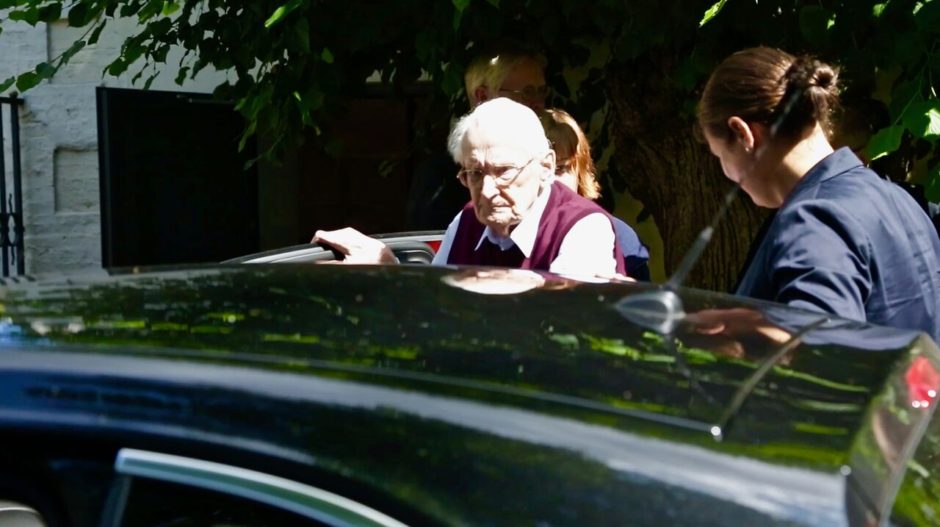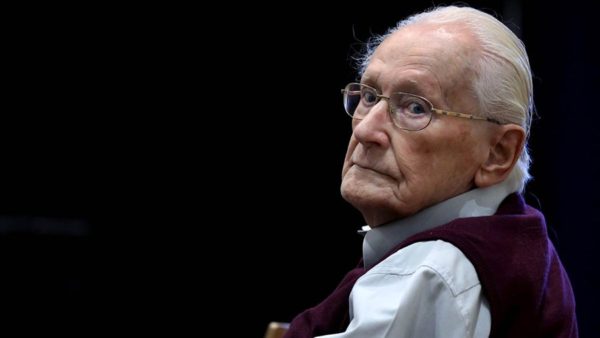
Oskar Groning, a functionary at the Auschwitz-Birkenau Nazi concentration camp in Poland, was charged with being an accessory to mass murder and put on trial in Germany in 2015, when he was 93 years old. Assigned to the camp as a bookkeeper, he spent much of his time there as a collector of valuables expropriated from newly-arrived Jewish prisoners, the vast majority of whom were summarily gassed.
The indictment against Groner — a member of the SS police force — dealt with a specific period of his two-year stay in Auschwitz. From May to July 1944, he processed the belongings of 300,000 Hungarian Jews, the last major group of Jews to be murdered there.
Perpetrators like Groner escaped justice, but after the war crimes trial of John Demjanjuk, a guard at Treblinka, the German government changed the rules of the game and began going after minor figures like him. Matthew Shoychet’s revealing documentary, The Accountant of Auschwitz, which will be screened at the forthcoming Hot Docs film festival in Toronto, explains his indictment and chronicles his trial in the northern German town of Luneburg, where he lived.
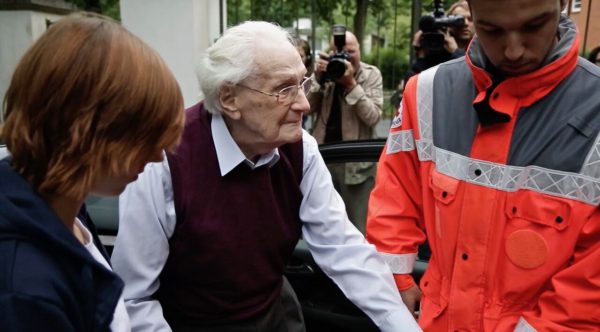
Although Groning was not a murderer per se himself, he was a vital component in the machinery of death at Auschwitz, which claimed the lives of about one million Jews. Groner was only a cog in the wheel, but the wheel could not have turned without him, says Auschwitz survivor Bill Glied.
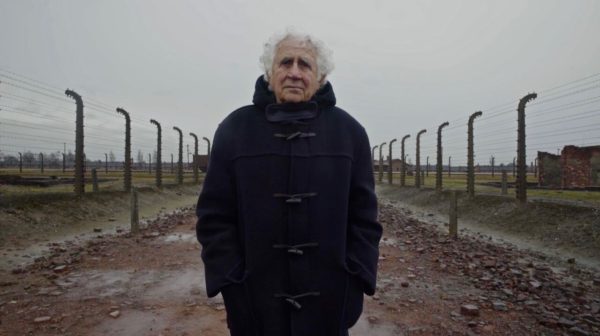
Glied is among several survivors who appear in the film. Others include Hedy Bohm, a remarkably poised and cultured woman, and Eva Moses Kor, a victim of Dr. Joseph Mengele’s ghoulish medical experiments who set tongues wagging after she publicly embraced and forgave Groning.
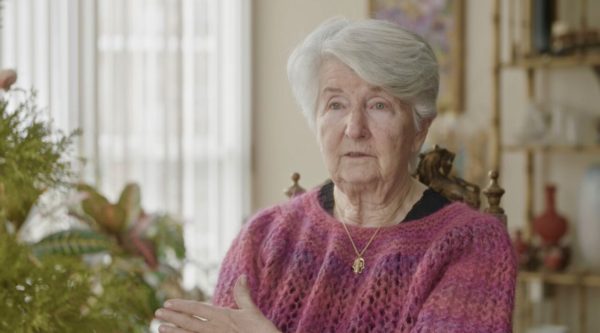
Further comments are provided by Thomas Walther, the German lawyer who represented the survivors; Benjamin Ferencz, the chief prosecutor in the postwar trials of Einsatzgruppen genocidal killers; Kai Feldhaus, a Luneburg journalist who covered Groning’s trial; Rainer Hoss, the son of an Auschwitz commandant, and Eli Rosenbaum, an American Nazi hunter who headed the Office of Special Investigations.
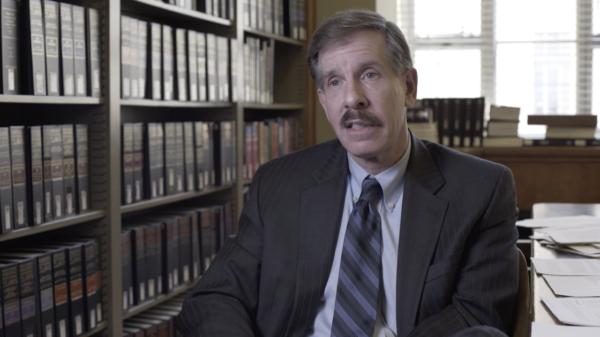
Shoychet also elicits the opinions of Luneburg residents. There are those who believe that Groning deserves punishment, while others see no reason for him to be prosecuted. One man is puzzled why Germany produced so many war criminals.
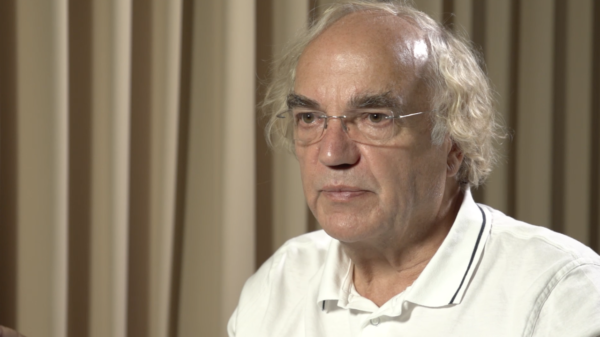
On the first day of the trial, a band of neo-Nazis/Holocaust deniers gathers in front of the courtroom to protest. Ursula Haverback, a woman in her late 70s or early 80s who seems to be a relic from the Third Reich, is one of them.
The film tries to place the trial within a historical context.
In the wake of the Nuremberg trial of major Nazis, the West German government prosecuted war criminals in a series of show trials. Much to the indignation of some Germans, virtually all the Nazis who were convicted were released after a few years. Many war criminals were never even prosecuted. Of 800,000 SS men at the end of World War II, 6,000 went to trial and only 124 were found guilty of murder.

Such was West Germany’s record in coming to terms with the Nazi past.
Groner, raised as a nationalist, was a true believer in the Nazi cause. As Shoychet suggests, he might have escaped the scrutiny of the German government had he kept a low profile. But for reasons which are not entirely clear, he agreed to be interviewed by the BBC. During the course of the interview, excerpts of which appear in the movie, Groning looked back at his Auschwitz interregnum with joy. He talked about its facilities — a canteen, a cinema, a sports club — and referred to the friendships he made there. Jews were the enemies of Germany and had to be exterminated, he said.
Despite his beliefs, Groning acknowledged “moral guilt” for his role at Auschwitz. In 2015, he received a light prison sentence, but appealed. As a result of multiple appeals, he never served a day in jail. He died last month, a free man who ultimately evaded justice.
SCREENING TIMES At Hot Docs:
